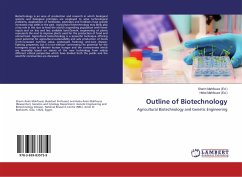
Intellectual Property and Biotechnology
Theoretical Arguments and Empirical Evidence
Versandkostenfrei!
Versandfertig in 6-10 Tagen
32,99 €
inkl. MwSt.

PAYBACK Punkte
16 °P sammeln!
Governments in North America and Europe have been using patents as a public policy tool to encourage the invention of health-related biotechnologies since the 1980. In recent decades however there has been a number of controversies related to patenting in biotechnology. Commentators are concerned that patents may be having a detrimental effect on innovation of and access to health-related products and processes. While empirical evidence that has been collected to date in relation to these concerns remains inconclusive, the debate may be clarified through the articulation of the rights and resp...
Governments in North America and Europe have been using patents as a public policy tool to encourage the invention of health-related biotechnologies since the 1980. In recent decades however there has been a number of controversies related to patenting in biotechnology. Commentators are concerned that patents may be having a detrimental effect on innovation of and access to health-related products and processes. While empirical evidence that has been collected to date in relation to these concerns remains inconclusive, the debate may be clarified through the articulation of the rights and responsibilities that are at stake. The scope and content of a human right to healthcare are ultimately society-dependent, but its articulation can clarify whether instrumental property rights granted to inventors are interfering with this right in an unacceptable way. Intellectual property rights in health-related biotechnologies cannot be justified from a theoretical perspective, and so more definitive empirical data elucidating the role that patents play in regards to innovation and dissemination of health- related biotechnology is needed.












